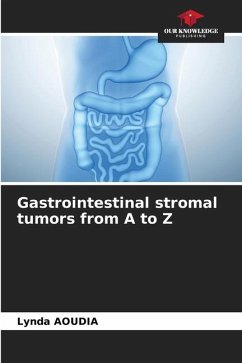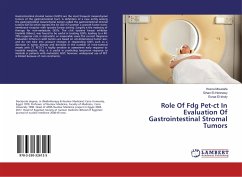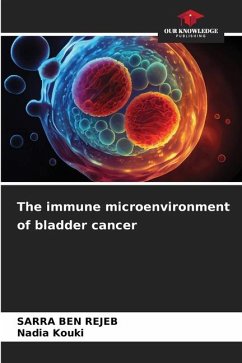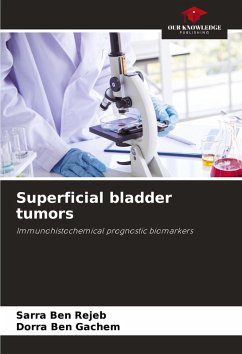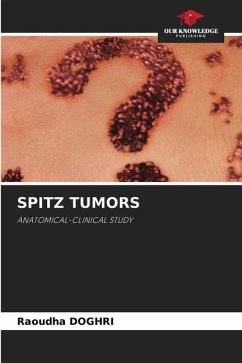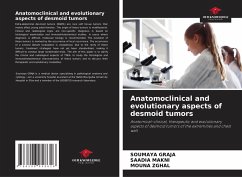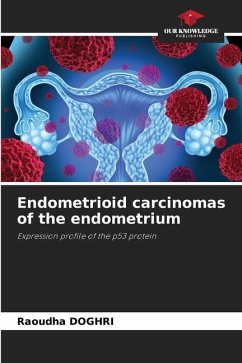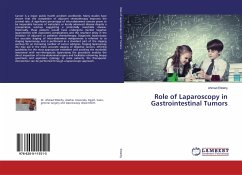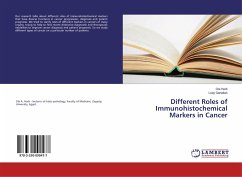
GASTROINTESTINAL STROMAL TUMORS
PROGNOSTIC BIOMARKERS
Versandkostenfrei!
Versandfertig in 6-10 Tagen
40,99 €
inkl. MwSt.

PAYBACK Punkte
20 °P sammeln!
The molecular alterations most frequently associated with GIST are mutations in the KIT and PDGFRA genes. Many other genetic abnormalities have been described, such as amplification of C-MYC, MDM2, EGFR1 and CCND1. The objective of this study was to analyze by immunohistochemical method the prognostic value of C-MYC and EGFR overexpression in GIST. We retrospectively collected 25 cases of GIST diagnosed in our department over a period of 15 years (2008-2023). The expression of EGFR and C-MYC was carried out by immunohistochemical method. C-MYC immunostaining was categorized into low and high e...
The molecular alterations most frequently associated with GIST are mutations in the KIT and PDGFRA genes. Many other genetic abnormalities have been described, such as amplification of C-MYC, MDM2, EGFR1 and CCND1. The objective of this study was to analyze by immunohistochemical method the prognostic value of C-MYC and EGFR overexpression in GIST. We retrospectively collected 25 cases of GIST diagnosed in our department over a period of 15 years (2008-2023). The expression of EGFR and C-MYC was carried out by immunohistochemical method. C-MYC immunostaining was categorized into low and high expression levels with a threshold of 25%. The intensity of immunostaining and the percentage of EGFR-positive cells were evaluated and grouped according to the Allred score parameters. Only cases with an EGFR TS score >4 were considered overexpressed. We included 25 cases. The average age of patients was 60 years with a male-to-female ratio of 1.5. C-MYC expression was observed in 60% of cases, with elevated levels in 33% of cases.





